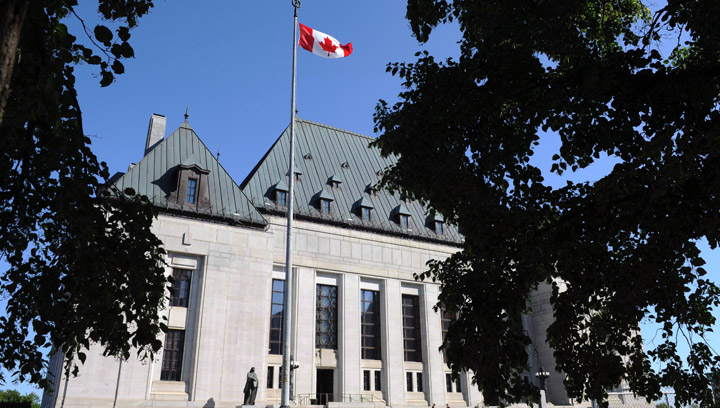OTTAWA – The Supreme Court of Canada says it will hear arguments on whether changes to Saskatchewan’s labour laws are constitutional.

The Saskatchewan Federation of Labour asked the high court to weigh in on provincial legislation that restricts who can strike and on other changes it says make union certification difficult.
The federation argues the changes infringe on the freedom of association and freedom of expression.
Federation president Larry Hubich says the legislation represents “significant infringements upon the fundamental rights of Saskatchewan working people.”
“We believe it is time for the Supreme Court of Canada to recognize that Saskatchewan people, and all Canadians, enjoy a right to strike that is constitutionally protected,” Hubich said in a news release Thursday.
“We are also asking for a declaration that the 2008 changes to the Saskatchewan Trade Union Act substantially interfere with workers’ right to form unions of their own choosing, for the purpose of bargaining collectively with their employers.”
The Supreme Court grants leave to appeal in cases that it feels go beyond the immediate interests of the parties involved.
A hearing date has not yet been set.
Saskatchewan Labour Minister Don Morgan said the right to strike would be a major issue across the country if it were to be upheld by the court.
“That would certainly change the dynamic of virtually everything that you do, because the focus of labour law is the right to withdraw services versus the right to maintain services or things that the public requires,” he said.
“That could be a significant game-changer.”
The Saskatchewan Party introduced the legislation in December 2007 shortly after winning its first provincial election.
The essential services law states employers and unions must agree on which workers are so needed they can’t walk off the job. But unions were outraged because the law also states that if the two sides can’t agree, employers can dictate who is essential.
The legislation passed in May 2008 and the court challenges began.
A Regina Court of Queen’s Bench judge ruled in February 2012 that the law was unconstitutional.
Justice Dennis Ball said at the time that “no other essential services legislation in Canada comes close to prohibiting the right to strike as broadly, and as significantly.” However, Ball upheld the principle of essential services and gave the government 12 months to fix the law.
The government went to the Saskatchewan Court of Appeal and argued that the lower court’s decision broke new ground when it stated there is charter protection for the right to strike.
The Appeal Court agreed with the province. It said the right to strike does not have charter protection.
The unions also appealed the Court of Queen’s Bench ruling, but on a different front. They wanted the appeal judges to overturn part of the lower court ruling that said the government’s Trade Union Amendment Act didn’t violate the charter.
The Court of Appeal dismissed that challenge.
The federation, on behalf of several provincial unions, said in June that it would seek the Supreme Court’s opinion.

Comments